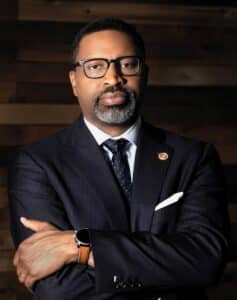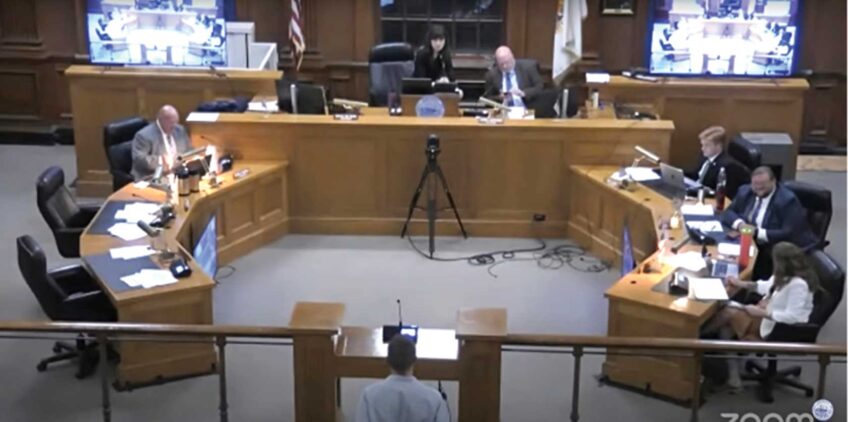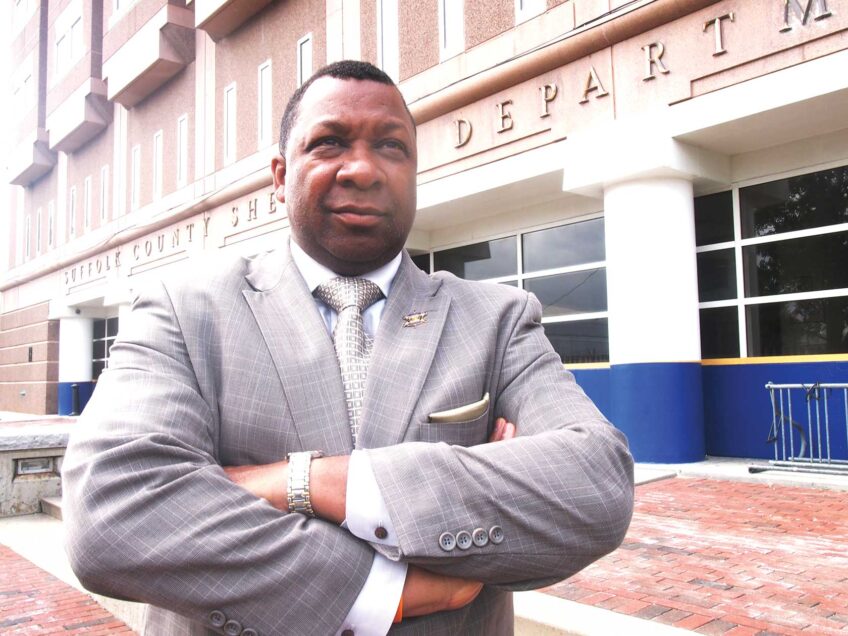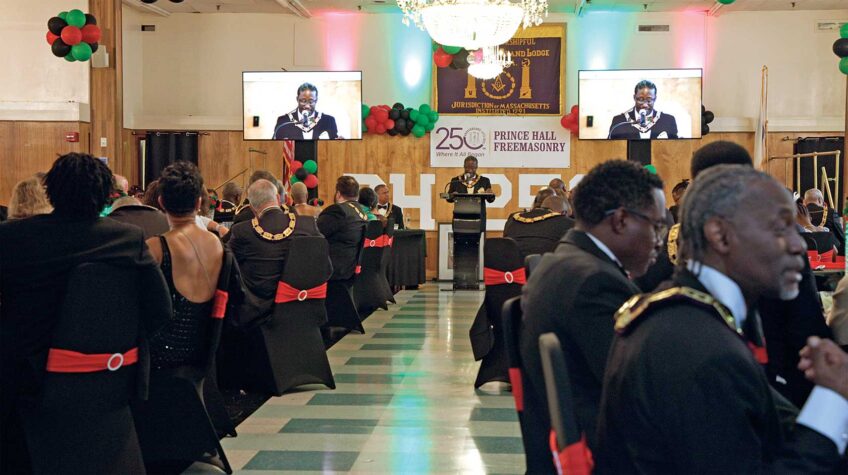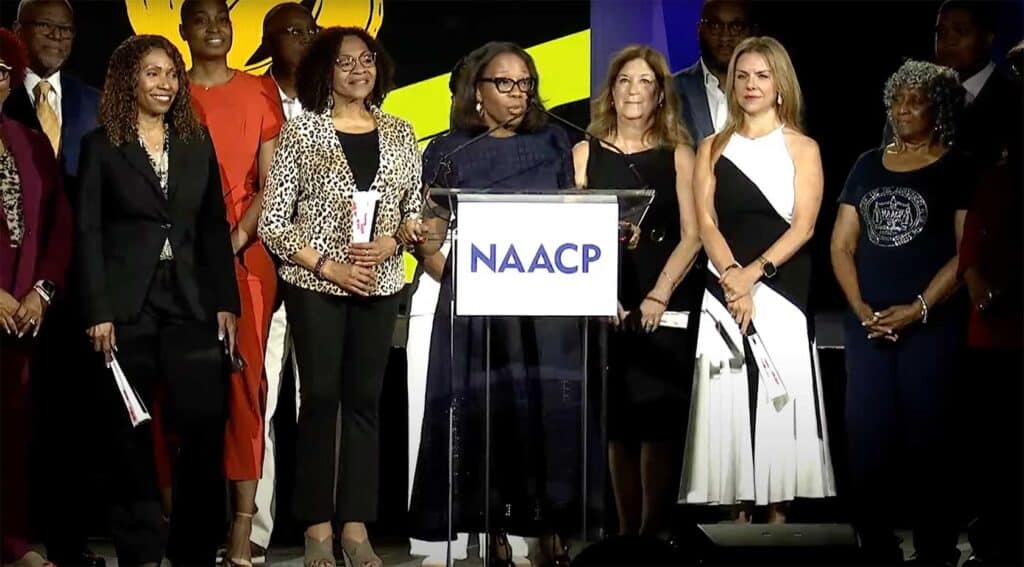
As NAACP members gathered from across the country, the efforts of the second administration of President Donald Trump loomed over their 116th national convention, held in Charlotte, North Carolina, July 12 through 16.
But while attendees showed up with high anxiety and a sense of disappointment in democracy, by the end of the five-day event, they left with a sense of determination, said Michael Curry, a member of the NAACP’s national board of directors.
“People came with heavy hearts and left empowered and informed and equipped with what they need to go back and fight on the ground in cities and towns across the country,” said Curry, who serves locally as the president and CEO of the Massachusetts League of Community Health Centers.
It was an outlook that was reflected in the official theme of the convention: “The Fierce Urgency of Now.”
That federal landscape hung over the heads of attendees throughout the convention. Plenary sessions discussed voting trends, and the national body’s resolutions — measures and positions, passed by the group and once approved by the national organization’s board of directors, set to define how local branches and state chapters approach their advocacy and policy work — leaned into responding to the moment.
“The fierce urgency of now is the sobering reality that we must focus on how we leverage the next opportunity and not be distracted so we are exhausted when it’s time for us to fight,” said Derek Johnson, president and CEO of the national NAACP during remarks at the convention’s closing plenary. “The fierce urgency of now tells us we cannot let the little boy cry wolf; we need to chart out when the wolf is coming, because we know it’s coming.”
The convention also marked the first time that the national NAACP, which is a nonpartisan organization, opted to not offer an invitation to the sitting president to attend, a choice that Curry said was based on the sense that Trump’s positions are “anti all things that this organization believes in and fights for.”
“Embedded in our work to fight for justice and opportunity for Black Americans is a commitment to democracy, to the true ideals of what a democratic government can provide for everyone — not just for Black people, but for everyone,” Curry said.
In a statement ahead of the convention, Johnson said that he believes Trump and his administration “believes more in the fascist playbook than in the U.S. Constitution,” and that it would have been “unacceptable” and a waste of time to use the convention to give a platform to fascism.
“The NAACP Convention has always been a place where people across the country come together to map out our advocacy and mobilization strategies to advance civil rights and democracy for all,” Johnson wrote in his statement. “Our annual convention is meant to be a safe space for all people — regardless of political ideology — who believe in multiracial democracy and the ideal of building a more perfect union.”
In response, Trump alleged the NAACP is advancing “hate and division,” according to a statement by a White House spokesperson, published by National Public Radio.
While he was not in attendance, Trump’s policies had their own gravity at the convention.
The administration’s push against diversity, equity and inclusion programs was countered with panels on supporting Black entrepreneurship, taking steps around activism and how to focus efforts on buying Black.
For Royal Smith, president of the Boston branch of the NAACP, top of mind was Trump’s efforts to dismantle the U.S. Department of Education, and the steps that the branch can, locally, take to support young people.
“What tools can we give them? Even though this time may be murky, what tools or time or motivations, or even just mentorship, can we give them to equip them for tomorrow?” Smith asked.
During the convention’s run, in Washington, the Supreme Court removed a lower court’s prohibition that had halted Trump’s efforts to dismantle the department.
And as Trump moves to shutter the Environmental Protection Agency’s scientific research arm, which provides expertise for environmental policies, and cut the agency’s staff by 23%, environmental justice was also on the docket at the convention.
A panel in the HUB — the convention’s take on an exhibition hall, with demonstrations and cultural programming — discussed the future of environmental justice funding amid federal cuts. Another session covered renewable energy solutions as a measure for climate justice.
Those efforts should be a priority, said Tanisha Sullivan, president of the NAACP New England Area Conference. She pointed to issues like poor air quality and high asthma rates in the greater Springfield area, as well as efforts — like an initiative from the NAACP branch in Manchester, New Hampshire to collect and monitor air quality data — that can be pursued even as federal funding support wanes.
“The environmental justice movement is a continuation of the civil rights struggle — fighting for the right to not only survive but to thrive in healthy, safe, and just environments,” Sullivan said in a statement.
More broadly, Curry said that one charge the convention left attendees with was showing the link between the administration’s policies and the impact they’re having on communities across the country.
In one presentation during the closing plenary, Terrance Woodbury, founder and partner at HIT Strategies, a public opinion research company focused on underrepresented voters, highlighted the trends among Black voters.
Woodbury, based on polling from the group, said he believes the 2024 election as well as future elections hinge on younger Black voters who either weren’t aware they missed voting in an election or who have opted not to vote because they feel like their votes don’t have an impact.
According to data in Woodbury’s presentation, almost half of Black voters — a trend that largely mirrored the country at large — said the actions of the Trump administration have neither hurt nor harmed them.
“We cannot activate a resistance, we cannot activate a resistance, we cannot fight back if we don’t think that what he’s doing is hurting us,” Woodbury said in his presentation. “This is the part here where we have to start connecting the dots between the actions that they’re taking.”
For the NAACP, which has filed a number of lawsuits against the Trump administration since January, that idea of “connecting the dots” is a necessary step to activate some of those voters and push back on the administration’s policies they view as harmful.
“We have to somehow convey that to our own communities where we come from, and make sure that the people are sort of in line and in step,” Smith said.
Beyond the federal landscape, other flashpoints in the current landscape featured prominently at the convention. Artificial intelligence, as well as how to work to make sure its use doesn’t reflect historical biases, was a topic covered in both sessions throughout the convention, and resolutions passed by the group.
One resolution targeted algorithms used in clinical settings that Curry said proved a barrier to Black and brown patients getting kidney transplants. And sessions covered what AI is, how it works and how it can be used.
“There’s good AI; there’s bad AI, and sometimes it’s hard to tell the difference,” said Smith.
Education around artificial intelligence also requires a push to overcome existing digital divides, he said.
ACT-SO competion
But the convention also saw a spark of positivity to balance out a challenging federal landscape, in the form of the culmination of this year’s ACT-SO competition. That competition — the Afro-Academic, Cultural, Technological and Scientific Olympics — lets young people from NAACP branches across the country practice and prepare to compete in skills from the visual and performing arts to science and technology and arenas like cooking and hospitality.
Local youth saw a host of wins at this year’s competition. In three competitions, Boston won silver medals — original essay writing, modern dance and contemporary dance. Overall, five Boston students competed across nine competitions.
Fatima Ali-Salaam, Boston’s ACT-SO chair, said the three silver medals made her feel elation and pride as a reflection of the hard work the students did.
“The work … took them a year to do,” she said. “It wasn’t something that was done overnight; it was work that came from them.”
Other students from New England also brought home medals. A Brockton student won gold in the earth and space sciences competition; another Brockton student scored silver in the ballet competition and gold in modern dance.
That dedication was noticeable in all the competitors, she said.
“Each student who comes, no matter what state it is, they’re all bringing their best efforts forward and you can see it,” Ali-Salaam said.
The competitions, which saw competitors go head-to-head across 33 categories, was an important balance to challenges the NAACP opposes under the Trump administration.
“It just reminded me that no matter what the struggle is going on outside, we can rise and do our best by our students,” Ali-Salaam said.

